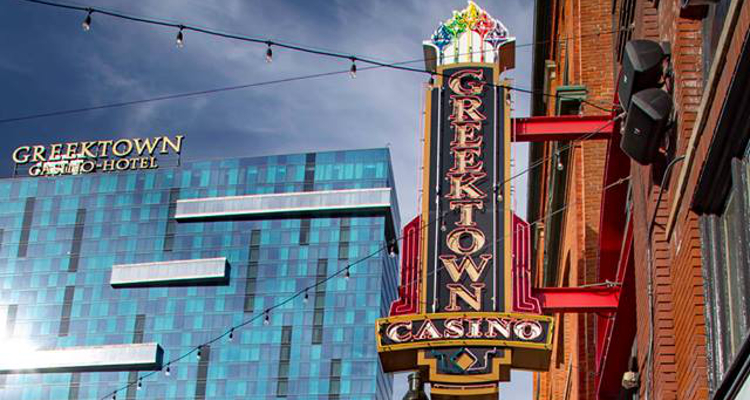A new report from the Michigan Office Of The Auditor General has controversially concluded that the Midwestern state’s gambling regulator has been insufficient in ensuring employees at Detroit’s three commercial casinos are licensed to the appropriate standard.
According to a report from The MLive Media Group, the 32-page report issued yesterday found that 213 employees at two Detroit casinos, which represented some 9% of the 2,345 total, were “not licensed in accordance with administrative rules” and urged the Michigan Gaming Control Board to re-classify the workers’ authorizations to the highest level “because they held supervisory positions within the gambling operation as table game supervisors, table game assistant supervisors, table game team leaders or poker room supervisors”.
The three casinos in Detroit encompass the Greektown Casino Hotel from local firm Jack Entertainment and Ilitch Holdings Incorporated’s MotorCity Casino Hotel along with the MGM Grand Detroit from MGM Resorts International and posted combined revenues of $1.37 billion in 2015, which represented 3.4% of the United States total.
The Michigan Office Of The Auditor General reportedly undertook its investigation, which covered the 19 months from October of 2013, to assess “the sufficiency of [the Michigan Gaming Control Board’s] regulatory and enforcement activities for charitable gaming and the three commercial casinos in Detroit” and additionally found that the regulator’s internal controls needed to be updated in order to reflect changes that have occurred since 1999 including the increased prevalence of computerized gaming technology.
However, the Michigan Gaming Control Board disagreed with the findings and declared that casino management now needs to set the internal controls with employee reclassification unnecessary due to existing licensing standards.
“[The Michigan Gaming Control Board] feels there are minimal risks in ensuring that eligible, suitable and qualified individuals are selected to work in positions of authority at the commercial casinos by utilizing the current licensing processes,” read a statement from the Michigan Gaming Control Board.
The state’s regulator reportedly issues three tiers of licenses to employees at the trio of Detroit commercial casinos and these involve the execution of criminal background inspections, searches for delinquent taxes and personal financial reviews including bankruptcy checks. Supervisors must have the highest “level-one” authorization and are moreover required to submit net worth statements and other financial information.
The Michigan Gaming Control Board explained that it interpreted the rules for “level-one” licenses to mean those that supervise an entire department or “make long-term discretionary decisions” while stating that the one Detroit casino that had upgraded its staff authorization rules did not need to take further action.
“The casino minimum internal controls noted by the [Michigan Office Of The Auditor General] were issued in 1999 as a guideline for the casinos until the creation of their own internal controls,” read a statement from the Michigan Gaming Control Board. “In many cases, the casinos’ internal controls are more stringent than the minimum internal controls were. As the casinos update and modify their internal controls with approval by the Michigan Gaming Control Board, the minimum internal controls have become obsolete.”
But, the report from the Michigan Office Of The Auditor General reportedly disagreed and concluded that ensuring that the 213 individuals were licensed to a “level one” standard “would provide both greater assurance of integrity and heightened public confidence in the regulation of casino gambling”.
A third recommendation from the Michigan Office Of The Auditor General urged the Michigan Gaming Control Board to make greater strides in ensuring regular compliance monitoring after not completing 14% of its required quarterly inspections. The regulator agreed with this point and reportedly explained that it had created a new policy in March to ensure that this would happen in the future.
The largest gambling market in the United States is Nevada with 27.6% of the country’s total gaming revenues in 2015 while Michigan lagged behind neighbors such as Ohio, which brought in 4.1%, and the 5.3% earned in Indiana. Last year saw the trio of Detroit casinos pay $111.4 million in state wagering taxes, which are set at 8.1% of total revenues.


